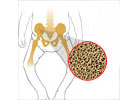A Saviour For Alzheimer’s Disease: Folate
A healthy diet can improve brain function for la longer period of time says a major observational study.
Adults who eat the daily recommended allowance of folate -- B-vitamin nutrients found in oranges, legumes, leafy green vegetables and folic acid supplements -- significantly reduce their risk of developing Alzheimer's disease, according to results from a long-term National Institute on Aging study of diet and brain aging.The study also found that folate appear to have more impact on reducing Alzheimer's risk than vitamin E, a noted antioxidant, and other nutrients considered for their effect as a brain-aging deterrent.
Maria Corrada and Dr. Claudia Kawas of UC Irvine's Institute for Brain Aging and Dementia led the effort, which analyzed the diets of non-demented men and women age 60 and older. They compared the food nutrient and supplement intake of those who later developed Alzheimer's disease to the intake of those who did not develop the disease. It is the largest study to date to report on the association between folate intake and Alzheimer's risk and to analyze antioxidants and B vitamins simultaneously.
"Although folates appear to be more beneficial than other nutrients, the primary message should be that overall healthy diets seem to have an impact on limiting Alzheimer's disease risk," said Corrada, who like Kawas started with the study while at Johns Hopkins University in Baltimore.
The researchers used data from the Baltimore Longitudinal Study of Aging to identify the relationship between dietary factors and Alzheimer's disease risk. Between 1984 and 1991, study volunteers provided detailed dietary diaries, which included supplement intake and calorie amounts, for a typical seven-day period.
Ultimately, 57 of the original 579 participants developed Alzheimer's disease. But the researchers found that those with higher intake of folates, vitamin E and vitamin B6 shared lower comparative rates of the disease. And when the three vitamins were analyzed together, only folates were associated with a significantly decreased risk.
Advertisement
"The participants who had intakes at or above the 400-microgram recommended dietary allowance of folates had a 55-percent reduction in risk of developing Alzheimer's," said Corrada, an assistant professor of neurology. "But most people who reached that level did so by taking folic acid supplements, which suggests that many people do not get the recommended amounts of folates in their diets."
Advertisement
"Given the observational nature of this study, it is still possible that other unmeasured factors also may be responsible for this reduction in risk," said Kawas, the Al and Trish Nichols Chair in Clinical Neuroscience. "People with a high intake of one nutrient are likely to have a high intake of several other nutrients and may generally have a healthy lifestyle. But further research and clinical studies on this subject will be necessary."
Source: The Journal of the Alzheimer's Association.








